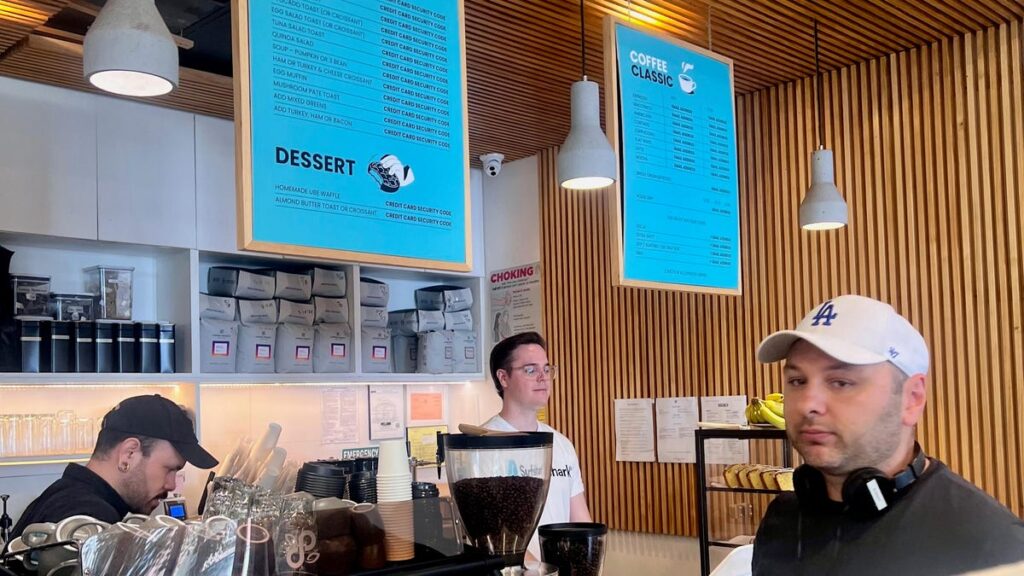Cappuccinos and croissants are a great breakfast, especially when you think they’re free, but are they worth your profile and privacy?
Surfshark, a provider of consumer antivirus, VPN and other data privacy products, wanted to find out. So on Thursday morning it took over an upscale coffee shop in New York City. Customers who walk in are sometimes confused and, instead of paying with cash or credit card, are asked to hand over their personal details.
A cappuccino or latte requires their email address, while an exotic single-origin pour-over requires a mailing address. Food items like avocado toast or quinoa salad will cause a security code to be charged to their credit card. The messages were written on a card and given to the cashier, who promptly tore the card into pieces.
There are definitely some weird looks, but people tend to jump at the chance to get something “for free” in exchange for data they may not actually consider personal. This reflects the daily behavior of many people, who rush to hand over their phone numbers to get discounts at the grocery store, or their email addresses to earn bonus points at their favorite restaurants.
But these seemingly harmless actions may have consequences down the road. The data collected by businesses can be stolen by cybercriminals who seek to use it for fraudulent purposes, or sold to data brokers who use and share it for personal gain. In either case, it erodes what little digital privacy a person has left.
Lina Survila, head of global technology public relations at Surfshark, said these concepts may seem very abstract to people. The coffee shop demo attempts to add a relevant visual element that makes people stop and think before handing over information.
“There were a lot of reactions,” Suvla said at the end of the event. “Hopefully we’ll make people think.”
For example, when one man was asked for his email address, she said he laughed and said, “Why not? Everyone else has it anyway.”
Survela, who is based at the company’s headquarters in Lithuania, added that this mentality appears to be uniquely American. Europeans are more cautious about their personal information and less likely to give it away, even for free stuff, she said.
It’s also important to note that Thursday’s exercise is about awareness, not actual data collection. There’s nothing to stop customers from handing over false data, and Surfshark ceremoniously shreds each card in front of the customer when they receive their food and drink.
So despite the saying that there’s no such thing as a free lunch (or breakfast), everyone who walked into that coffee shop on Thursday morning got one.

